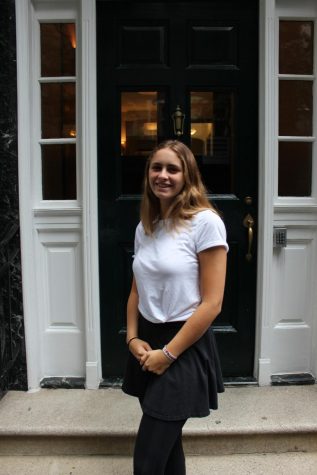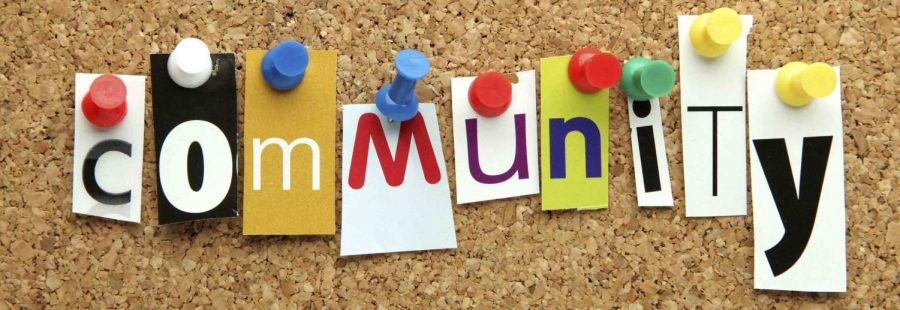Community Time or a Waste of Time?
A new platform called “Community Time” was instituted this year. “Community Time” allows Ramaz Upper School students to gather together, reflect on our Ramaz community as a whole, and discuss the different initiatives that we have engaged in over the past month or so. Two community sessions took place this November, each hosted by Rabbi Albo. Both ceremonies started off in a similar way, with students reading one of the five clauses of Ramaz’s mission statements.
The first “Community Time” consisted of an introduction describing the assembly’s format. Following that, five chosen students, representing all of the grades, explained the meaning of the mission statement that they read. Josephine Schizer ’20, one of the students who read a piece of the mission statement, said, “It was nice to have the chance to participate in community and I’m excited to see what Rabbi Albo has planned for the rest of the year.” After completing that portion, Rabbi Albo discussed all of the different acts of kindness and chesed that we perform as a community.
Many students, particularly freshmen, appreciate the “Community Time.” Julia Feit ’22 felt that she was “finally beginning to understand all the different acts of kindness and things Ramaz has to offer outside of the classroom.” She continued, stating, “I was able to relate to what Rabbi Albo was saying because I heard many of my fellow classmates’ names when he mentioned the different acts of kindness that Ramaz does as a community.” Rabbi Albo addressed many students, faculty, and parents who devote countless hours to chesed and the Ramaz community. He mentioned specific names throughout the presentation, which gave each student a deeper insight and connection to what Rabbi Albo was describing. Many felt that this was a worthwhile way to spend time together as a school and reflect on the Ramaz community in a positive light.
However, as meaningful as this “Community Time” was to many students, others reacted differently. While these students clearly appreciated the numerous chesed activities in which Ramaz is involved, they thought that this “Community Time” was an example of Ramaz propaganda. Some felt as if they were incoming freshman parents, considering which high school their child should attend. Gabby Schwartz ’20 felt that “‘Community Time’ was just praising certain individuals and making us all sit down and hear people talk about their achievements.” These students felt that the limited amount of time the whole school has together was wasted on unnecessary speeches, and that the time should be devoted to cultivating student unity and promoting chesed projects.
The second “Community Time” was held right before Thanksgiving, and the ceremony began the same way as the previous one. A group of selected students read each of the mission statements out loud to set the mood and decorum of the program. Again, there were critics of this format: this time, students expressed confusion over the redundancy of repeating the same mission statement they had heard a few weeks before. However, others began to understand the importance of integrating different sets of students into the school assemblies.
During this second “Community Time,” students heard from Mayor of Englewood, NJ Michael Wildes, Rabbi Bodner, Mr. Deutsch and Rabbi Albo. Many students agreed that this assembly was more meaningful that the last because it actually had a purpose, which was to recognize how fortunate we are to be living as Jews living in America. As Hannah Doft ’20 says, “I am already experienced with the meaning of community time, so I felt that this community ceremony was better than the past ones because it brought together Judaism and what it means to be an American.” This ceremony also consisted of a performance of a set of songs from Hallel by Rabbi Albo and the guitar ensemble, which allowed students to express their gratitude for the United States through song. Sophia Kremer ’20, a member of the guitar ensemble, felt that “it was so nice to hear students singing along with Rabbi Albo and waving their flashlights. It felt like I was performing at a real concert! This community time was definitely a success.”
Overall, the second “Community Time” of the school year got better reviews from the student body. Most students concluded after the program that “Community Time” is not a waste of time as long as there is a clear purpose and execution to the program. As Gabi Potter ’20 says, “The sole purpose of community time is to reflect on what we do as a Ramaz community. In order to have the student body enjoy it, it has to have a balance between purpose, meaning and also fun!”

Aliza Freilich has been writing for the Rampage since her Sophomore year and is excited to be serving as Co Layout Editor. Outside of Rampage, Aliza is...



